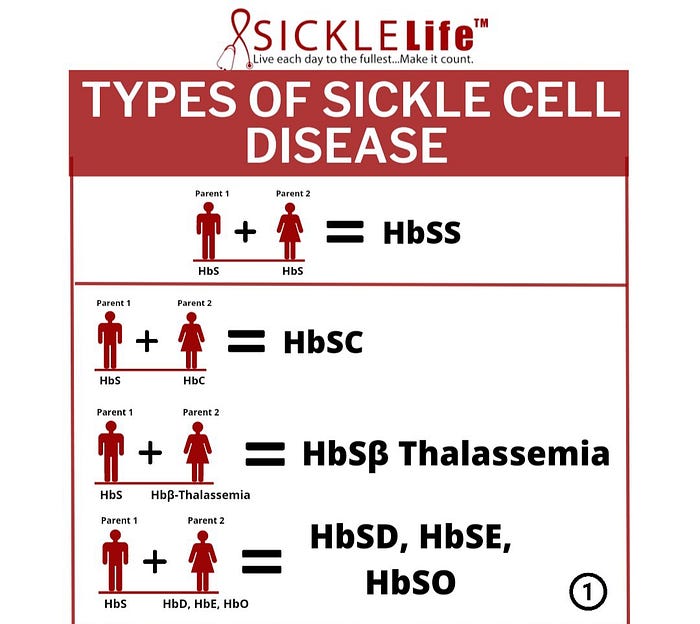
TYPES OF SICKLE CELL
Sickle cell disease (SCD) is a group of inherited blood disorders characterized by the presence of abnormal hemoglobin in red blood cells. There are several types of SCD, with the most common being caused by different genetic mutations. The primary types of SCD include:
1.Hemoglobin SS Disease (Sickle Cell Anemia): This is the most common and severe form of SCD. Individuals with hemoglobin SS have inherited two copies of the hemoglobin S (HbS) gene, one from each parent. This results in the production of primarily HbS, leading to the characteristic sickling of red blood cells. Hemoglobin SS disease often presents with severe symptoms, including frequent pain crises, anemia, and a higher risk of complications.
2.Hemoglobin SC Disease: People with hemoglobin SC disease inherit one HbS gene from one parent and one hemoglobin C (HbC) gene from the other. Hemoglobin SC disease generally has milder symptoms compared to hemoglobin SS disease. However, individuals with this type of SCD can still experience pain crises and other complications.
3.Hemoglobin Sβ Thalassemia: This type of SCD results from inheriting one HbS gene from one parent and one beta thalassemia gene from the other. It can vary in severity, with some individuals experiencing milder symptoms than those with hemoglobin SS disease.
4.Other Variants: There are rarer forms of SCD caused by different combinations of abnormal hemoglobin genes, such as hemoglobin SD, hemoglobin SE, and others. These variants may have varying clinical presentations and complications.
It's important to note that the specific type of SCD a person has can influence the severity of their symptoms and complications. Additionally, SCD can affect individuals of various ethnic backgrounds, although it is more prevalent in populations with African, Mediterranean, Middle Eastern, and Indian ancestry.
The type of SCD a person has is determined by the specific genetic mutations they inherit from their parents. Genetic testing can accurately identify the type of SCD and guide healthcare providers in managing the condition and addressing potential complications. Treatment and management plans are tailored to the individual's specific type of SCD and their unique healthcare needs.
